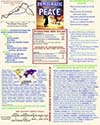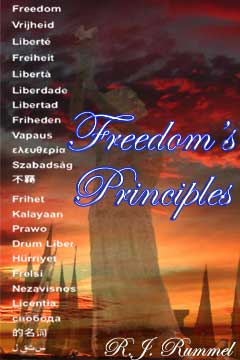[First published February 14, 205] When I fist started my studies of war and peace as an undergraduate in 1956 there was no peace studies or peace research generally identified as such. There were well known scientists and scholars working on war, international conflict, and peace (I will let war stand for all three related interests), however, such as Lewis Fry Richardson, Quincy Wright, Karl Deutsch, and Harold Guetzkow. In the early 1960s, their work and that of others began to form a critical mass that researches soon identified as peace research (or peace science). I was one of those that promoted this by my MA thesis, Ph.D. dissertation, and subsequent publications on the causes and conditions of war and violence. The idea was to apply to the study of war the scientific method that had been so successful in physics and medicine, conjoined with solid scholarship.
Peace research is now a concentrated field of study, with such excellent researchers and scholars as Bruce Russett, Nils Petter Gleditsch, and J. David Singer, and such rigorous journals as the Journal of conflict Resolution and the Journal of Peace Research. Much of our understanding of war causation and conditions have come out of peace research, as has the modern conception and empirical substantiation of the democratic peace. My web site is a peace research one.
However, peace is a political term, and a favorite among those on the far left. Now, I want to be careful here not to use too broad a brush. There are peace studies organizations, programs, and departments that are doing very good peace research. But they are in a small minority. Of peace studies as whole, however, it has attracted many of the anti-war, peacenik, and leftists who see peace as a flag in the struggle for ideological supremacy, or don’t know any better. Thus, much of what comes out of this group displays ignorance, and deep misunderstanding of war and international relations; or are diatribes and propaganda, largely against the United States. You know the mantras—American imperialism, war for oil, or murder of millions (Johan Galtung, a major organizer and entrepreneur of such peace studies has claimed that the U.S. has murdered six million); inequality the cause of war; capitalist hegemony; 9/11 was terrorists getting even; and so on.
Now, the peace studies industry has overshadowed peace research, as shown by the link below, and few outside of the field know the difference. This is too bad, but what I suppose one should expect, given that peace studies is imbedded in the left-wing academic culture. And I believe it will remain that way until American universities, as least, return to true academic freedom and political diversity of thought.
Link of Note
”Peace Studies’ War Against America” (4/30/03) By Greg Yardley
”Peace studies is hardly a mainstream course of study in America, but it just might be the latest academic fad. Over two hundred and fifty colleges and universities in North America offer ‘Peace Studies’ programs; many allow students to obtain complete graduate or undergraduate ‘Peace Studies’ degrees. If trends continue, more are on their way. That’s unfortunate – from the first major study of Peace Studies programs, a cutting pamphlet by human rights activist Caroline Cox and conservative philosopher Roger Scruton, these programs have been condemned as incoherent, incapable of being a serious topic of study, and loaded with political bias. . . .
“Unfortunately, these Peace Studies courses are nothing more than the academic bastion of the ‘blame America first’ crowd. America is presented as the aggressor in the Cold War, as a society founded on militarism, colonialism, and oppression, and as a society that sustains itself through racism, sexism, and class conflict. “



 Posted by rudyrummel
Posted by rudyrummel 






